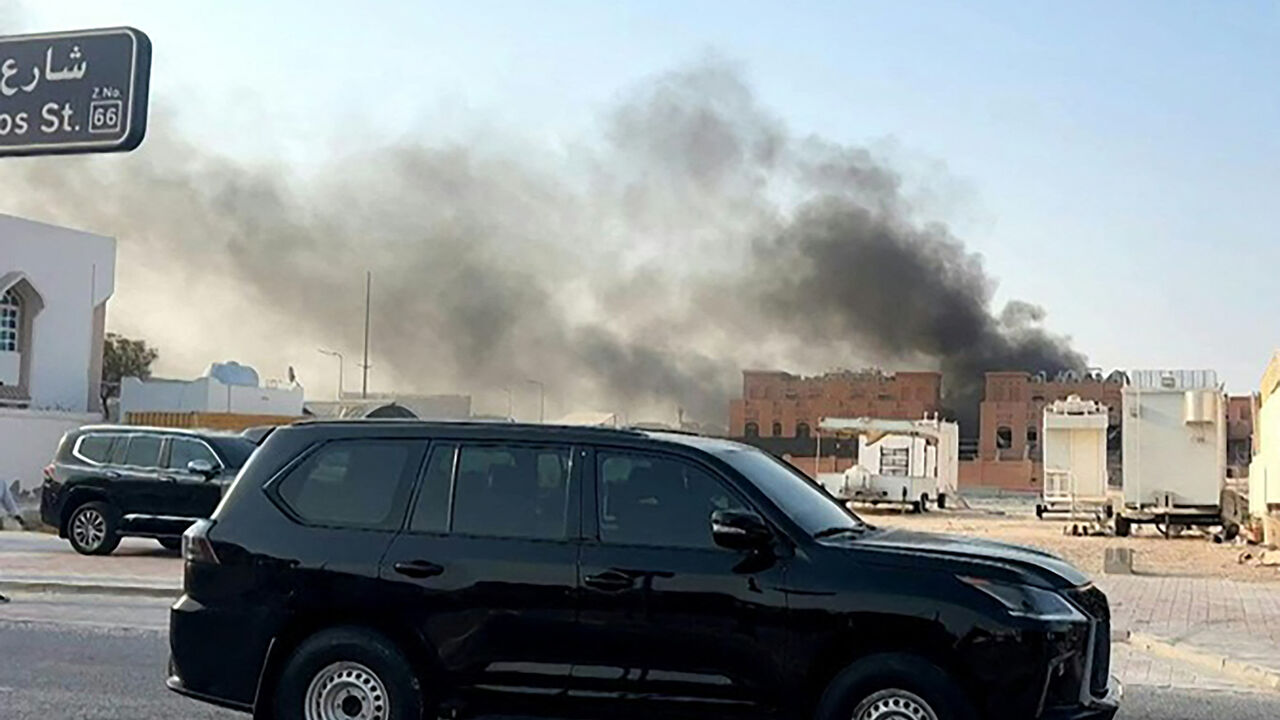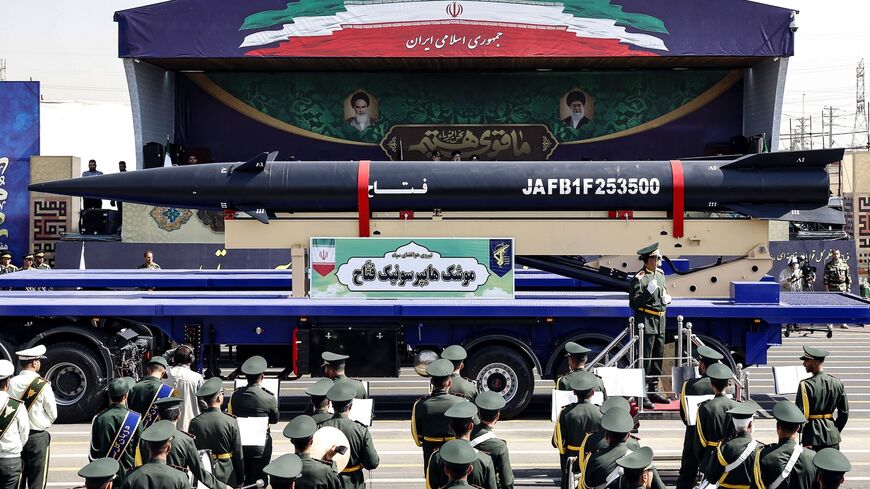Pentagon had no warning Israel planned to strike Qatar, US general says
The top US Air Force commander for the Middle East said early warning systems did not determine that Israeli warplanes had launched ballistic missiles towards Qatar, a US ally, until it was too late, following fresh concerns about the Pentagon's ambitions to build an air defense umbrella for the region.

WASHINGTON — The top US Air Force general for the Middle East on Wednesday sought to assuage doubts about the Pentagon’s ability to coordinate an air defense umbrella for Gulf states following unprecedented Israeli airstrikes in Qatar earlier this month.
“I am very confident in the ability for us, right now, to repel an attack from drones or ballistic missiles,” Lt. Gen. Derek France told reporters on the sidelines of a conference hosted by the Air and Space Forces Association in Maryland.
Yet France also sought a bit of damage control following the surprise Israeli air raid on Sept. 9. The Israeli operation killed five Hamas members and a Qatari security official in a residential area of Doha, drawing strong condemnation from neighboring Arab states and the UN Security Council.
Senior officials in Qatar — a major non-NATO US ally — expressed outrage in the aftermath of the Israeli strikes, but stopped short of publicly blaming Washington. US President Donald Trump said his administration failed to warn Doha in time after learning of the Israeli strikes from US military officials as the attack was ongoing.
“We did not get a warning about this happening,” France told reporters. “Our systems were the first indication that we had. And there was discussion at some point with my counterparts in Israel, but our systems noting the attack was underway was our first indication."
The comments by the top US commander responsible for overseeing threats in airspace across the Middle East marked the first public attempt by an American official to answer for the US military's role in monitoring the Israeli air attack in Qatar.
Doha is home to the Al-Udeid Air Base, which hosts the US 9th Air Force and US Central Command’s forward headquarters in the region, as well as the command’s Combined Air Operations Center (CAOC), an integrated headquarters for all air operations in the region. As many as 7,000-10,000 US military personnel are typically present at al-Udeid at any given time.
Pentagon officials have spent years painstakingly seeking to persuade Arab military leaders to share sensitive air defense and radar data with the US Air Force based out of the CAOC at al-Udeid in order to build a collaborative air defense umbrella to defend against drone and missile attacks emanating from Iran and its proxies in Iraq, Syria and Yemen.
But Israeli F-15s circumvented the US’ regional air defense architecture by launching high-trajectory ballistic missiles over the Red Sea, sending them up over the airspace of Saudi Arabia before they struck the group of Hamas officials in Qatar’s capital, the Wall Street Journal first reported.
France, speaking publicly to reporters about the incident for the first time on Wednesday, said that the US military’s satellite and radar early detection systems did not pick up the launches by Israeli warplanes because, he said, those systems were focused on Iran.
“This strike that Israel did against the Hamas target in Doha was something that we had no indications and warnings of, because our surveillance – and all our attention – was not put on something [like] that,” he stated. “It wasn’t something that we expected.”
“While we have exquisite systems and things that can detect a lot of different things, those things are typically focused on Iran and other [areas] where we expect an attack to come from,” France said.
The “operational lesson learned,” France said, was “the importance of indications and warnings and having the right systems, whether that's space-based, air-based [or] non-traditional to understand those attacks as they're happening.”
Asked whether he had any concerns the Qatari government could restrict the US military's basing or freedom of action in the country in response to the Israeli strikes, France seemed to imply the rift has largely been smoothed over.
"When you have strong mil-to-mil relationships all the way down through the ranks, that really is an insurance piece against when political tensions go sideways," he said. "So that's the reason that we have forward basing." Qatari officials have stopped short of publicly blaming the US for the Israeli strikes.
Roughly two hours after France’s comments on Wednesday, a drone fired from Yemen injured at least 48 people in the southern Israeli port city of Eilat. Yemen’s Houthi rebels claimed credit for the attack, which hit a shopping area.
Israel said it was investigating the incident and noted that the Israeli Air Force had carried out two unsuccessful interception attempts using Iron Dome missile launchers.
Despite expressing confidence in the US-supported air defense efforts in the region, France admitted he remains concerned about the long-term “numbers game” involved in thwarting Iranian drone and ballistic missile attacks.
“Drones, specifically, are cheap to make in large numbers, that becomes a challenge when you're exclusively playing defense against them,” he told reporters.




